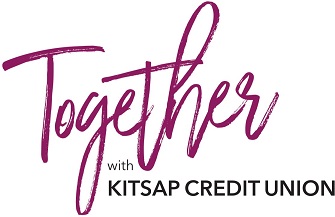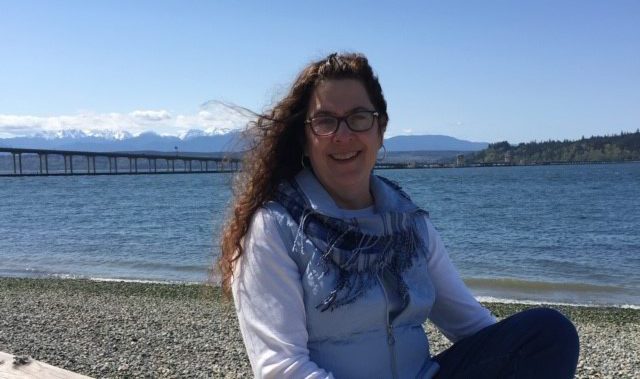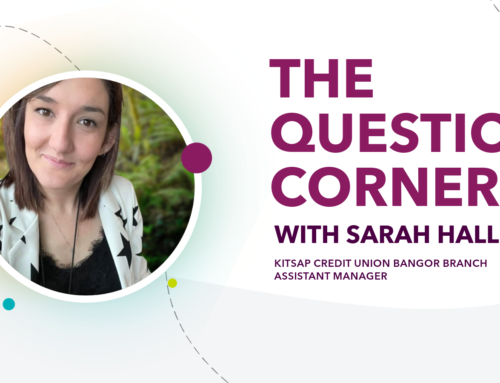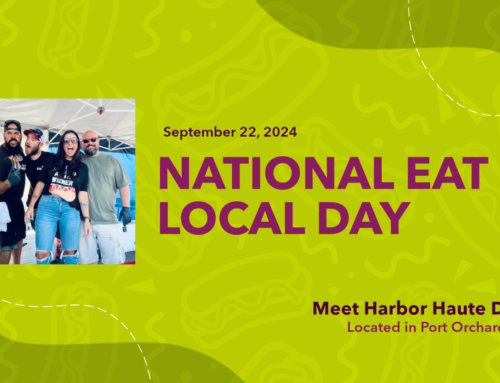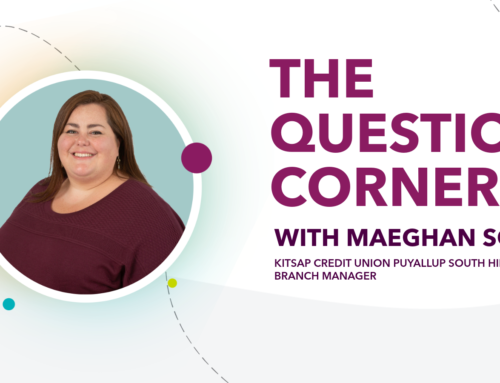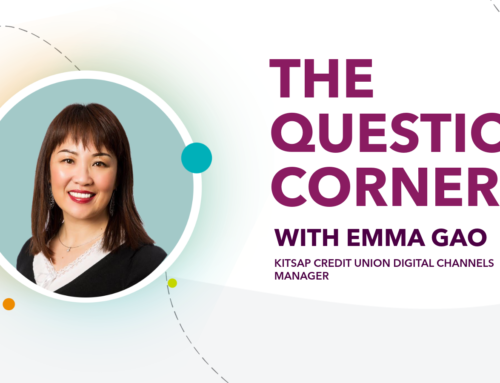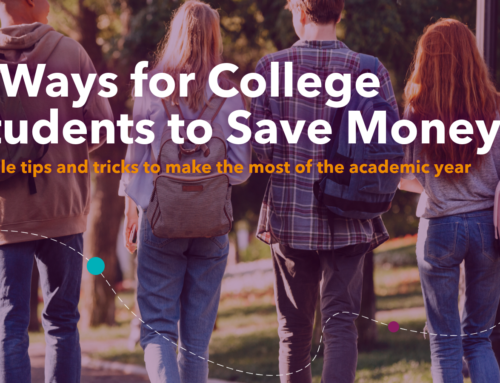April is National Financial Literacy Month! In honor of this celebration, we wanted to kick off our series of Expert Interviews by speaking to Cathy Brorson, our Outreach Coordinator. She runs our Financial Wellness Program and works tirelessly to promote financial literacy in our communities.
Can you tell us a bit about yourself and your background?
I am KCU’s Outreach Coordinator and have been part of the KCU team for 21 years. I manage our community events and financial education programs. Much of my time is spent working with 16 local high schools to certify young adults in learning basic financial concepts.
Many parents want to teach their kids healthy financial behaviors at a young age. When do you believe parents should begin teaching their children about money management? What is a good approach to get started?
The sooner the better! One place to start is by role modeling your own financial habits. If your kids hear that you follow a budget they may do the same once they’re older. If they hear that you save money every paycheck, they’ll learn that saving money should happen every 2 weeks.
One great resource for parents is KCU’s “It’s a Money Thing,” which is available on our website and we frequently highlight money management tips on our social media channels. It’s fun, engaging, and designed for young people.
Many adults did not benefit from a strong financial education at a young age and now may realize that they need to make a change and develop better financial habits. However, this is a big change, and they may not know where to start. How do you recommend they start making changes?
We don’t know what we don’t know, so educate yourself first. Visit KCU’s website and check out our Financial Wellness playlists to brush up on a variety of financial topics. This will help you make better financial decisions. You can even create a personalized playlist based on your own financial needs. Once you have the base knowledge, just make one small change at a time.
What is the most common financial mistake here you have seen? What should someone do instead?
Build your savings while you pay down your debt. A common mistake is many people focus on just paying down debt. Although paying down debt is important, a financial emergency could strike at any moment. If you do not have emergency savings available, you could be right back in debt all over again. A better strategy is to build your savings and at the same time pay down your debt. Then, if a tragedy does strike, you have a savings cushion that will cover your needs and keep your account out of the red.
What are your top three financial tips for adults?
- Pay Yourself First: If it is hard to save, think of it as a “monthly bill” you owe yourself and build your savings before you pay other bills. It is not selfish to ensure your own future financial stability.
- Set SMART Financial Goals: SMART goals are Specific, Measurable, Attainable, Realistic and Timely. Review your goals frequently to make sure they are still moving you in the right direction.
- Use Credit Wisely: Don’t view credit as “extra” cash. If you can’t afford to pay off your balance each month, that’s a sign that you’re over-extending yourself, which can be a very slippery slope!
Do you think there’s more value in earning more money, or saving the money you already have? Why?
Both have value, however saving money is always a wise choice. No matter how much money you make, you can always spend that extra money, leaving you in the same financial position as you were in the first place. No matter how much money you make, you can always save and continue building your financial stability. Also, by saving wisely you can take advantage of compound interest (which is interest earned on interest.) You work hard for your money, so now let your money work for you!
What are your favorite financial literacy resources for anyone to access?
KCU has excellent financial education tools available at no cost to improve your financial wellness and help you achieve your goals! Our It’s a Money Thing program and our Financial Wellness Program is available to everyone. You don’t have to be a member to use these tools.
